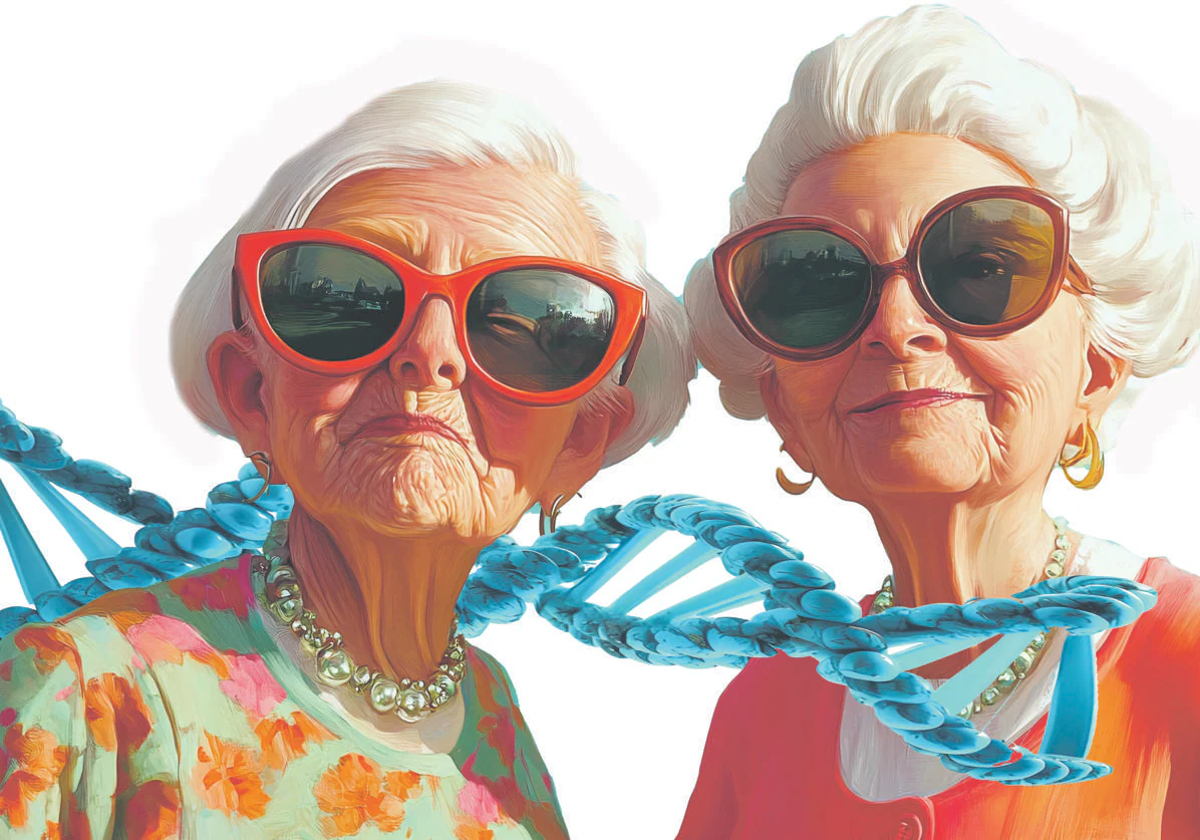Eating less and genetics help you to live longer, but which factor carries the most weight?
An overzealous approach to calorie restriction can lead to a shorter lifespan, a study warns
"If you want to live a long life, there are aspects you can control, such as your diet. However, what you really want is to have a very old grandmother." This is the main conclusion of a recent study published in the prestigious journal Nature. The study confirms that while eating less can contribute to a longer lifespan (a view widely supported by scientists) having good genetics is actually even more crucial. Moreover, it is important not to overdo calorie restrictions or fasting, as these practices can actually be harmful. The researchers stated, "Although caloric restriction is generally beneficial for longevity, our data shows that losing weight through these measures may negatively affect lifespan."
Scientists have known for decades that laboratory animals that eat less tend to live longer. This phenomenon has also been observed in humans. One of the most notable examples is found in the Okinawa Islands of Japan. Due to cultural practices, the residents there consume between 10% and 15% fewer calories than they would normally need. As a result, they enjoy a longer lifespan, boasting 68 centenarians for every 100,000 inhabitants, which is thee times the rate seen in some areas of the United States. In contrast, Spain has a centenarian percentage of just 0.04 percent. The people of Okinawa not only live longer but also enjoy a better quality of life.
Experts propose two explanations for this phenomenon. The first is the hypothesis of metabolic rate, which suggests that the higher our metabolic rate (the minimum energy required for survival) the shorter our lifespan tends to be. In simple terms, caloric restriction makes us more efficient. The second explanation views ageing as a process of oxidative accumulation within our cells. This can be likened to a washing machine that loses efficiencey with use and over time. While the components (our cells) continue to function, they do so increasingly poorly. Eating less may help protect against this cellular deterioration. Regarding quality of life, reducing food intake can prevent obesity and help control cholesterol levels and diabetes.
Five diets get tested
The researchers examined five different types of diets on a thousand, completely genetically diverse, mice, a very important factor to keep in mind. One group of mice had unrestricted access to food at any time. In two other groups, their caloric intake was reduced to 60% and 80% of their usual levels. The remaining two groups experienced two consecutive days of fasting each week, after which they could eat freely for the rest of the week. The mice in the unrestricted group lived an average of 25 months, while those on a cyclical fasting regimen lived an average of 28 months. The group that consumed 80% of their usual caloric intake lived up to 30 months on average and the mice that ate only 60% of their usual calories had the longest lifespan, averaging 34 months.
Metabolic profile
Up to this point , the findings are nothing particuarly new. However, the researchers highlight that there was significant variation in lifespan within each of the diet groups. For the mice that underwent the most severe food deprivation, the variation in lifespan ranged from just a few months to as much as four and a half years. Genetics appeared to be a key factor in this variability. The mice that were able to maintain their weight, body fat percentage and overall immune health during periods of reduced food intake tended to live the longest. "Our study really underscores the importance of resilience," the researchers explained.
It remains to be determined which specific genes actually contribute to increased lifespan. In the case of the population from the Okinawa Islands, who have been relatively isolated for a considerable period, they have managed to retain some unique genetic traits. Research has indicated that they have a lower prevalence of the ApoE4 gene, which is one of the main genetic factors associated with Alzheimer's disease. This gene is also linked to cardiovascular diseases and higher cholesterol levels. They also may posess another gene that offers protection against cancer.
The study also lead to another conclusion: the best way to maintain good health and live a long life is to control food intake without being overly restrictive. Animals that lost significant amounts of weight on these diets tended to have low energy levels, weakened immune systems and ultimately shorter lifespans. "While caloric restriction is generally good for longevity, our data shows that losing weight through caloric restriction can actually be harmful to lifespan. Therefore, when we look at human trials of longevity drugs and see that people are losing weight and improving their metabolic health, this may not be a reliable indicator of their future longevity," the researchers concluded.

